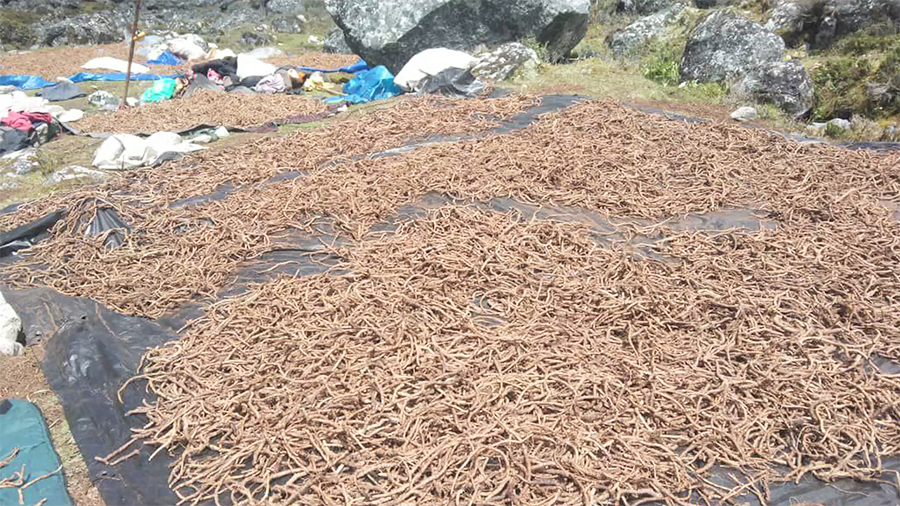
The Wangchuck Centennial National Park in Wangdue Phodrang has been seeing an increasing number of illegal herb collections. Despite increased efforts, officials are seeing many people trying to harvest the medicinal plant locally called “puti-shing”. The Sephu Park Range Office has reported triple the number of cases this year compared to previous years.
The picorrhiza species or puti-shing is a high-altitude medicinal herb, found between 3600-4500 meters above sea level.
The rhizomes or underground stems of the plant have high medicinal value.
However, according to the Forest and Nature Conservation Rules and Regulations of Bhutan, the collection of the herb is not allowed.
However, the rules and regulations have not stopped people from climbing the cliffs and mountains to gather the rare herb.
Officials say incidences are on the rise.
From only five to ten cases in a year, there have been about thirty cases of illegal collection so far this year. Officials also caught more than a hundred people at the collection sites attempting to collect the species.
Officials have seized more than one hundred kilograms of puti-shing and collected more than Nu 600,000 in fines from illegal collectors.
Local leaders say the illegal activities have also put the lives of the local people at risk.
Sephu Gup Dawa Tshering says, “When people from other gewogs and other districts come here to collect puti-shing illegally, it also puts the safety of the yak-herders here at risk. People who come to carry out such activities don’t bring much ration. So they start stealing from the yak-herder camps.”
Park officials say the increasing illegal activity is also causing waste management problems in the mountains.
However, the problem is expected to be addressed by the new guidelines for collecting the species that are specified in the Forest and Nature Conservation Rules and Regulations of Bhutan, 2023.
As per the guidelines, “The Department shall facilitate and promote the formation of Non-Wood Forest Produce Management Group in accordance with Section 142 of the Act and register with the Division or Park Office; and prepare management plan as per the Forest and Nature Conservation Code of Best Management Practices in Bhutan.”
“The government has come up with new policies where yak herders will be permitted to collect the species after forming groups among themselves. So, we will issue the permits accordingly,” says Dawa Tshering.
According to the Park Range Office, monitoring the whole of the protected area is a challenge mainly due to limited manpower.
Puti-shing is harvested in the cold months starting in August and continues until it snows.
Changa Dorji, Wangdue Phodrang
Edited by Yeshi Gyaltshen









